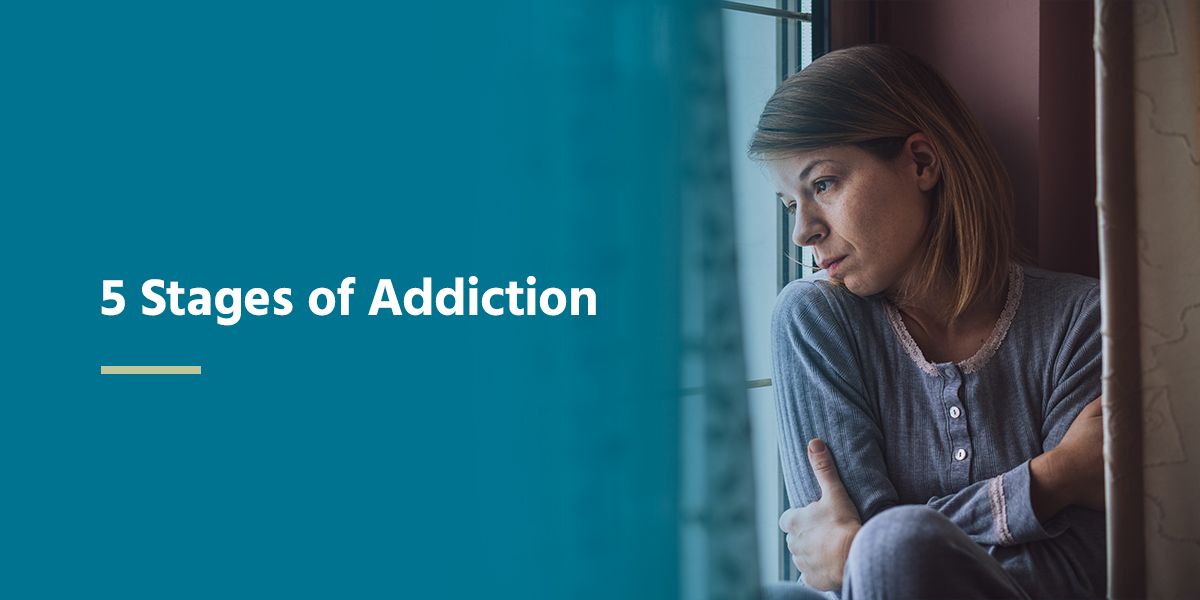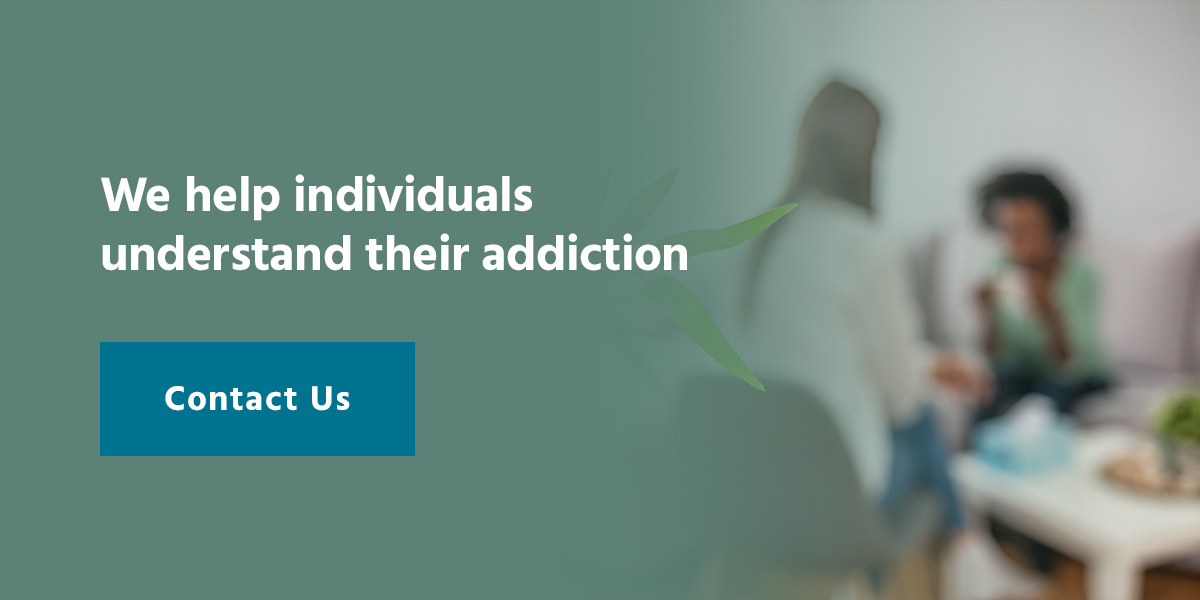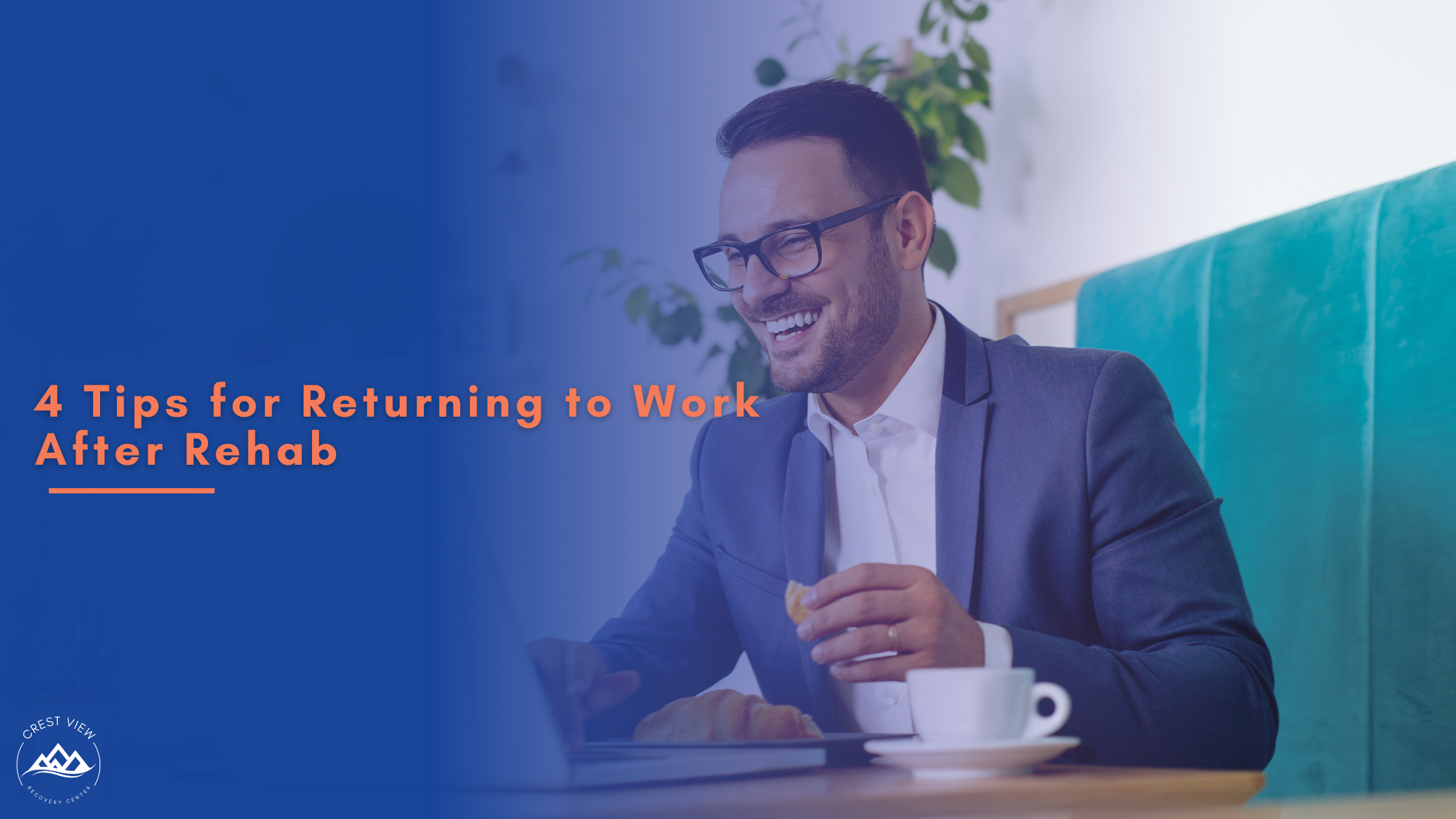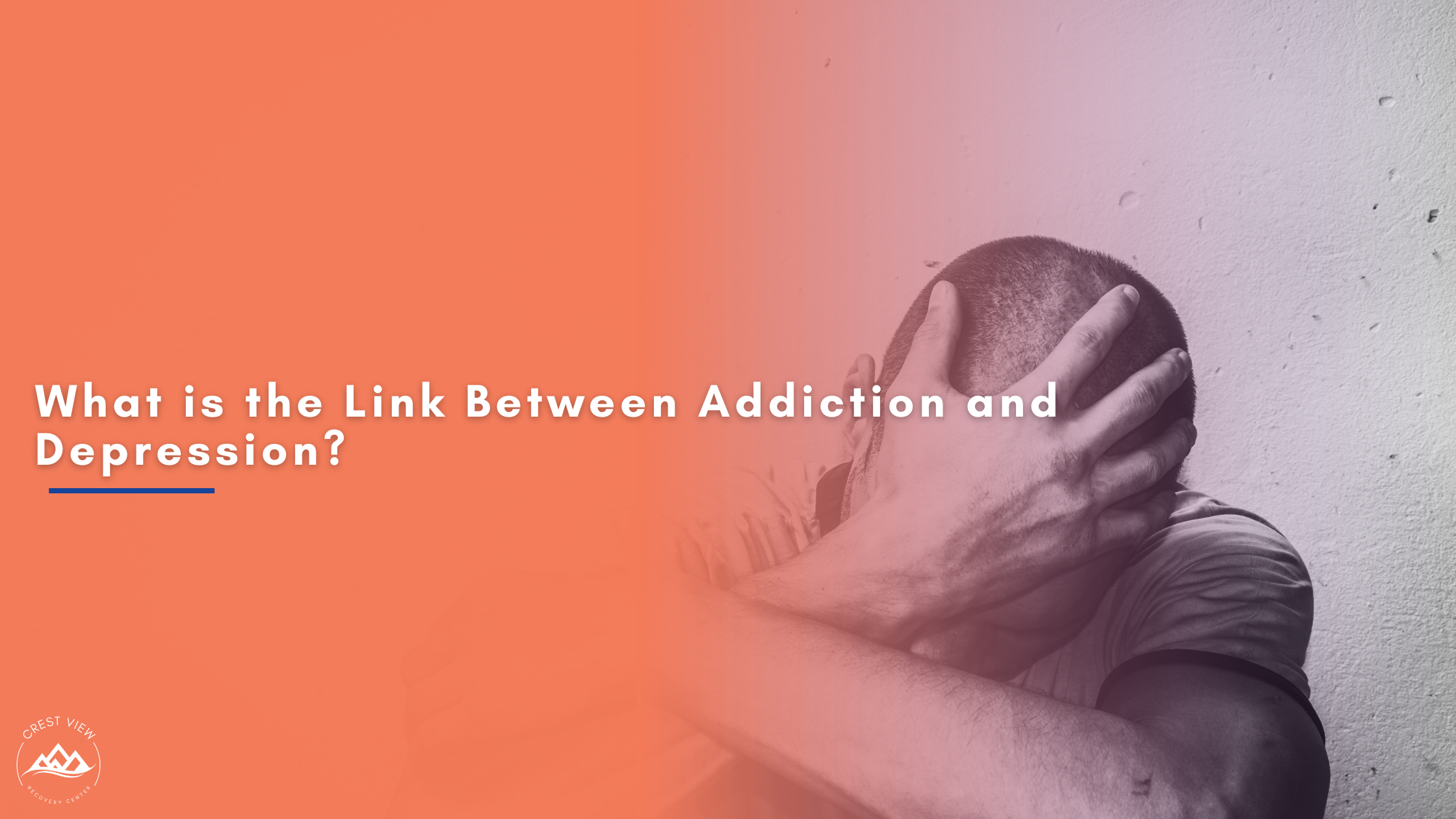About 21 million Americans struggle with addiction, but very few people seek treatment for their condition. Addiction happens slowly. Once a person starts using a substance, they progress through the stages of addiction before developing a substance use disorder.
Even though the substances vary, the stages of opiate addiction are very similar to the stages of alcohol addiction or other substances. Below, we’ll talk about the signs of addiction and guide you through each stage, so you have a better understanding of how an addiction forms and how you can help your loved one recover.
What Are the Signs of Addiction?
Identifying the signs of substance abuse can help friends and family members intervene and seek medical treatment for a loved one. It can also help individuals identify addiction within themselves if they’re unaware an addiction exists, potentially encouraging them to seek treatment independently. There are multiple signs of addiction, including:
- Loss of control
- Lack of interest in hobbies or activities
- Denial, irritability or anger
- Mood swings
- Failed attempts to quit
- Continued use despite the consequences
- Depression, anxiety or paranoia
- Sleep disturbances
- Overwhelming thoughts about using a substance
- Reckless behavior
- Social isolation and withdrawal
- Lack of personal hygiene
- Poor performance at work or school
- Legal and financial trouble
Depending on the substance used, the signs of addiction will vary. For example, a person addicted to alcohol may experience blackouts and memory loss while intoxicated. Those addicted to heroin may have track marks on their arms, legs or other body parts. If you suspect a loved one is struggling with addiction, watch for these signs and any changes to their physical and mental health. The sooner you can identify an addiction, the sooner you can get help and prevent severe health and life consequences.
What Are the Stages of Addiction?
Knowing the stages of drug addiction can help you understand a person’s behaviors when they’re misusing a substance. You’ll be able to identify people in your life who are at risk for addiction or who may have already developed one. As a person progresses through the stages, the dangers of dependence and addiction become more severe. It also becomes more challenging to quit the further along a person is in the addiction stages.
Below, we’ll guide you through the five stages of addiction, so you can be prepared to help a loved one.
1. First Use
The first stage of addiction is the first use of a substance. Some people use a substance for the first time out of curiosity, while others use substances due to peer pressure. People may also be prescribed medication, such as opioids, by their doctor. People can use drugs at any time in their lives but are often exposed to substances before they turn 18. A substance use disorder can develop before they turn 20.
Individuals may view their first use as a one-time occurrence, but this opens the door for future use. Some people try a substance one time and never use it again. Others have life circumstances that influence further use, including mental health conditions, peer pressure, availability or a family history of drug use.
2. Regular Use
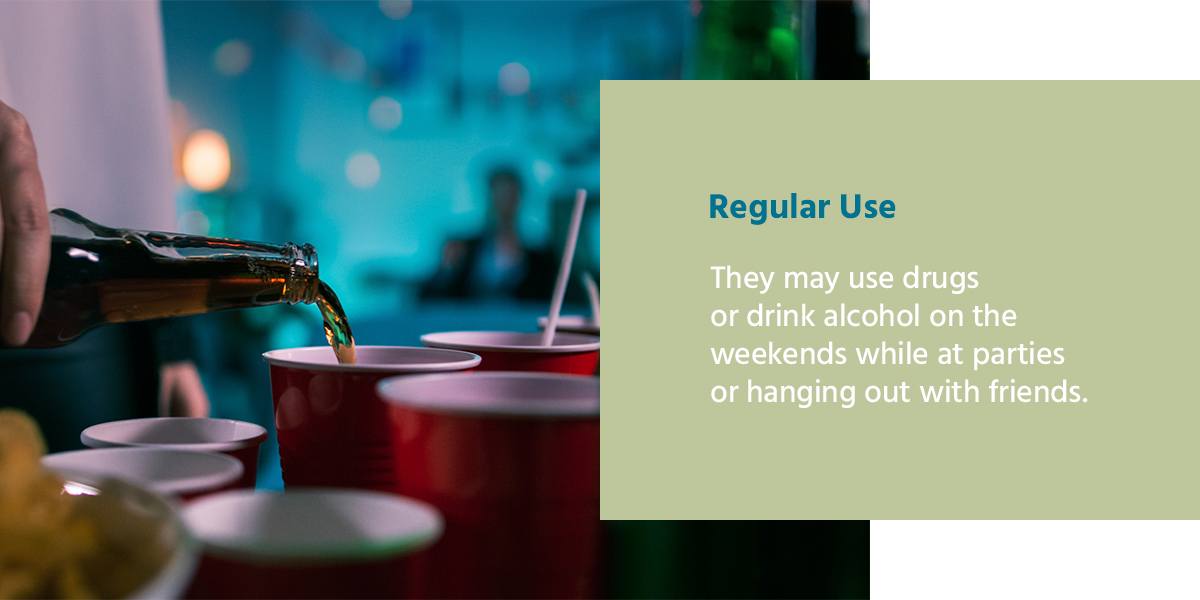
If a person uses a substance and enjoys how it makes them feel or believes it will improve their life, they may start to use the substance regularly. They may use drugs or drink alcohol on the weekends while at parties or hanging out with friends. Occasional use may become a regular occurrence. It might become a part of a person’s routine.
At this stage, a person may be lulled into a false sense of security that they’re able to quit whenever they want. They’ll experience little to no cravings and actively choose to use the substance. The frequency of their substance use will depend on reasons for taking it, whether to relax at the end of the day or fit in with peers.
3. Risky Use
The next stage after regular use is risky use. A person will continue to use a substance despite the physical, mental, legal or social consequences. Their use likely started as a way to escape or have fun with peers but has now taken priority over other aspects of their life.
Once a person reaches this stage, they may start to experience negative consequences due to their substance abuse. Their behavior will become more reckless, such as driving under the influence or stealing money to finance their substance use. A person may also start underperforming at work or school or might experience tension in their personal relationships.
4. Dependence
The next stage is a physical, mental and emotional reliance on the substance. The individual is no longer using the substance for medical or recreational purposes. When a person doesn’t use the substance, their body will exhibit withdrawal symptoms, such as tremors, headaches, nausea, anxiety and muscle cramps.
The body and mind believe that the substance is essential for survival. A person will use a substance to continue to cope with challenging situations and even when it’s unnecessary. At this stage and without intervention, addiction becomes more likely.
5. Substance Use Disorder
While some people use dependency and substance use disorder interchangeably, they’re very different. Once a person develops a substance use disorder, substance misuse becomes a compulsion rather than a conscious choice.
A person may feel like life is impossible to deal with without the substance. The effects felt in the previous stages will become more severe. A person may lose their job, fail out of school, become isolated from friends and family or give up their passions or hobbies. They’ll also experience severe physical and mental side effects, depending on the substance they’re using.
At this stage, it can be nearly impossible for a person to quit on their own. They’ll usually need help from an addiction specialist or physician who can treat their symptoms and recommend the ideal approach for recovery.
It’s essential to remember that once a person has reached this stage, addiction is a chronic disease with the risk of relapse, even after treatment and recovery. A person must stay committed to their sobriety and make the necessary lifestyle changes to prevent relapse.
How Behavioral Health Professionals Can Help
If you or a loved one are struggling with addiction, Crest View Recovery Center can help. Our outpatient rehab facility in Asheville, North Carolina, personalizes treatment based on your unique circumstances. We use evidence-based clinical treatments and therapies to help you overcome addiction and reclaim your life.
We help individuals understand their addiction and the steps necessary to reach and maintain sobriety. Our outpatient program allows you to seek treatment while keeping up with life’s responsibilities. At Crest View Recovery Center, you’re never alone. Call us at 866-986-1371 or contact us today to learn more about our treatment programs and how we can help you recover from addiction.

